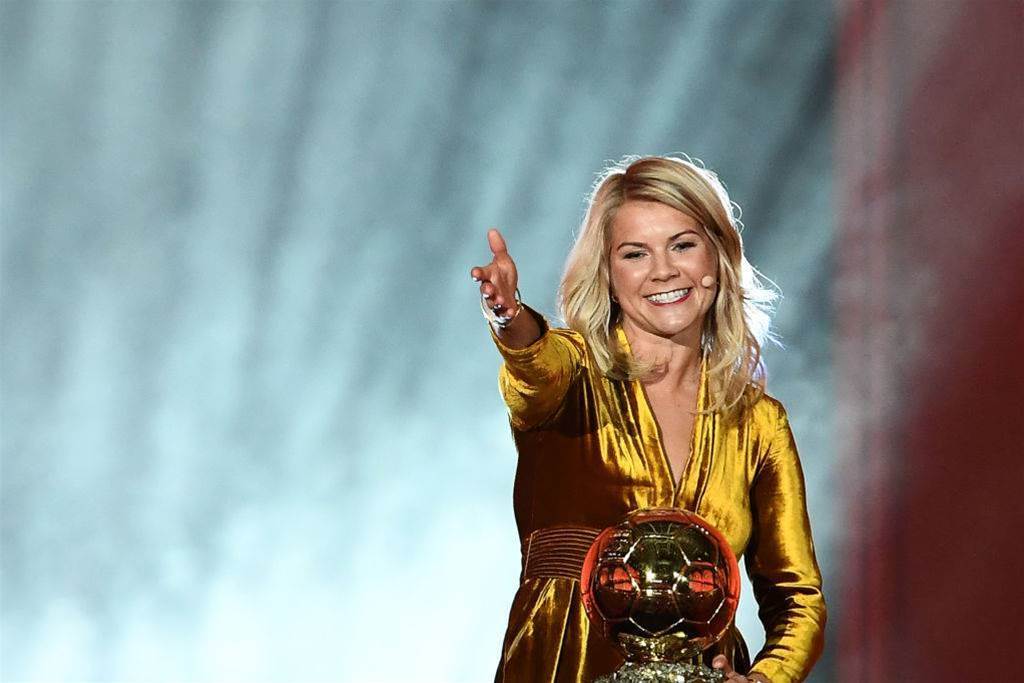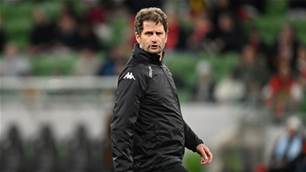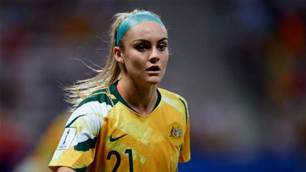There are professional footballers and then there are professional women’s footballers.
The modern sporting era has been defined by a distinct gendered divide, particularly evident in football.
The professional male footballer is treated as a completely different entity to the professional female footballer and this gendered division has had a detrimental effect on women's football for far too long.
Women’s football has been criminally underfunded comparative to the men’s game for far too long, and the powerbrokers of the world game have done comparatively very little to rectify this situation, for far too long.
This is not another article drawing attention to the statistical anomaly that is the discrepancy in value between male and female footballers. The entire debate can be summarised with one simple statement.
In 2018, Neymar JR was paid an annual wage worth more than the combined annual wage of every woman’s professional footballer on the planet.
The discourse has remained stagnant, focused exclusively on why things are the way they are and who is at fault, but this article is looking to focus, instead, on HOW.
How do we fix it?
How do we create an environment where prospective female footballers are treated like professional athletes and not second-class citizens?
How do we increase the value of female athletes and the leagues they compete in? How do we invite more investment and secure more sponsorship? How do we increase engagement and participation in women’s sport?
Firstly, we should acknowledge the positives;
- Norway and Australia have committed to paying their athletes equally, no matter the gender.
- France, Spain and England pay an average liveable wage to all of their athletes.
- In 2018, the prestigious Ballon D’or was awarded to athletes of both genders for the first time.
This is because the first step, according to the first Ballon D’or feminine winner Ada Hederberg, is respect.
If we are to create an environment where women athletes can train and compete professionally then we need respect. If we are to create an environment where little girls can see their heroes thriving, in person and through the media, then we need respect.
If we are to create an environment where female athletes can pursue their dreams without having to also pursue a separate financial means of living, then we need respect.

Ada said:
"I was very fortunate to sign with Olympique Lyonnais, which is the model for this level of respect. At Lyon, the men’s and the women’s teams are treated as equals. We need more people in the game with the vision of Jean-Michel Aulas, who knows that investing in the women’s game is a win-win for the club and the city and the players.
"The male players are treated as our colleagues. It’s that simple. Isn’t that the way it should be everywhere? Every female player deserves the same opportunity to develop. There’s so much talent out there all over the world that deserves a chance to shine.”
It seems simple, almost insultingly so, but this level of respect is not apparent in most professional//semi-professional clubs around the world.
Without that respect from the executive branch of the prestigious professional clubs, it will not trickle into the national associations, the national teams, the semi-professional clubs and the community clubs.
Most distressingly, if women aren’t treated like professionals by those that employ them, how can prospective players ever consider themselves professionals?
How can the fans invest in them emotionally and financially if they don’t consider women footballers as professional footballers? How can the little girls watching football at home ever desire to play football for life?
This is aimed at the Presidents and CEOs and other so-called leaders of the footballing world.
It is time to look at female football with the same level of respect as the male game. It is time to stop looking at footballers, all footballers but especially female footballers as commodities and start looking at them as athletes. It is time to invest, and it is time to respect.
If we accept the game's leaders wilfully refusing to support or respect female athletes, then they are going to take matters in their own hands.
The seeds are already being sewn, there are trailblazers across the world fighting for change. Macarena Sanchez, for example, is an Argentinian footballer, leading the charge for equality almost single-handed.
In 2018, Macarena became the first female footballer from Latin America to seek legal action against her club and national association.
"I think what stops women's football being seen as professional in Argentina is the strong machismo and patriarchy. If our society does not entirely accept women's football, it's because someone put in their heads that this sport is only for men. This is the biggest challenge we women face," said Sanchez.
The most high-profile recent example is the USWNT taking the US football association to court over the discrepancy in payment allocations and the minutiae of professional support between the male and the female team.

They are the start of the revolution; the disrespect and lack of support has hit a critical mass and the women of the world are starting to collaborate and legislate for an equal opportunity to play the game they love.
Where will you stand when the dust settles, and history has been written? Did you stand in the way of progress? Did you remain idle when those around you were proactive? Did you perpetuate the disrespect, or did you provide the support that these professional athletes needed?

So, how?
The question of payment is easier in some circumstances than others.
In Australia, the collective bargaining agreement was negotiated to parity because the women’s team can generate comparative sums to the men's team due to their increased competitiveness on the world stage.
Chris Nikou, Chairman of Football Federation Australia, had this to say at the conclusion of the negotiations for the collective bargaining agreement:
"For the first time, player remuneration will be directly tied to the revenues generated by our National Teams -- this will create a sustainable financial model that incentivises players and FFA to collaborate and grow the commercial pie together."
This same remuneration model could be adopted by other teams with comparatively successful teams, such as the USWNT.
Conversely, men’s teams such as Belgium or Brazil who are highly competitive in the world stage can generate vastly more income as opposed to their female counterparts and the investment into the national teams reflects this disparity.
The European heavyweights of Spain, England and France have disregarded this traditional model of investment.
Each of these nations have competitive male and female national teams but they have achieved this by investing in both sets of athletes treating all their footballers with the respect that they are owed as professionals.
Each nation has different, yet equally progressive investment models that allow them to pay competitive wages no matter the amount of money that is generated by each team individually.
Therefore, there is increasing numbers of talent being acquired by the leagues in these countries, investment begets investment.
Spain and England have been able to implement these investment models without the economic booster of a world cup that France enjoyed, but the current trends are working towards an equal playing field in terms of sponsorship and exposure by the media.
Breaking down sponsorship and exposure
The pursuit of funding is an ongoing and ever-present aspect of sports management.
Sponsorship has historically been difficult to secure for women’s sports with investment from female-orientated brands either choosing other marketing avenues or investing in male sport.
Examples include Gillette, Dove and L’Oréal who all invest heavily into men’s sport, almost to the detriment of women’s sport.
It is essential for the public to call out brands that invest extremely heavily in male sports without considering their female counterparts.
The simple 'money where the exposure is' argument doesn't cut it anymore, because there is increasing amounts of data that suggest that women footballers present better marketing potential due to their stronger stories.
Despite this, there is still a lack of investment, with brands choosing instead to invest in unknown male athletes rather than established female role models.
Brands that are unable to break into the male game, and use the history of underinvestment as an excuse to avoid sponsoring female athletes, clubs or sports.
It's deplorable and it doesn’t make good fiscal sense. Sam Grimley, Commercial director at ‘GumGum’, an online company that looks at sponsorship value says:
“You open up a whole new pyramid of brands. … I know what the entry level is for certain Premier League clubs, and it can be seven digits to even have a conversation. So that obviously rules out a lot of brands very, very quickly. If the women's team is asking for low six figures, it means you've got this much bigger audience of brands you can reach with the money and also you've got brands who may not want to target a certain demographic.”
Female athletes are considered inspirational, make excellent role models and are advocates of positive body image.
They present better “stories” from a marketing perspective and are perfect for entry-level brands to improve engagement.
How do we increase engagement with women’s sport?
That is what the true litmus test is for the value and support for female football.
Dear reader, the success of women’s football is dependent on you. It will never be taken seriously unless it is supported seriously.
This is aimed at those who seek to play the game professionally but do not possess a membership to a women's team. Think of it as an investment in your own future. How are you meant to be taken legitimately if you will not do the same for those who trailblaze ahead of you?
Those of you who play the game but do not watch the game. How are you meant to improve as footballers without watching the game played at the elite level? Parents who wish to provide every opportunity for their children but do not encourage them to see the role models that they require to help realise their potential.
Either on the television or in person.
Little girls need to see women playing football professionally if they are to imagine themselves playing football professionally. Little boys need to watch professional women’s footballers if they are to going to respect women’s professional footballers.
Club supporters. Those who live and breathe for their tribe, their club. Those who battle the wind and rain to add their voice in support of their team but refuse to do the same for those other athletes who wear the same colours but have a different gender. If you truly want to see success for your club then you need to wish for success for ALL your club. If we truly want women’s football to be professional, then it is up to us to support women’s football. All of us.
We cannot allow ourselves the luxury of thinking that we exist separate from this issue. We are the key to overcoming the barriers and all it takes is for us to engage with the sport that we love if we are to affect positive change.
That is how we turn women’s footballers, into footballers.
Related Articles

'Timing not right': Montemurro's verdict on Matildas vacancy

Matildas: 'Fourth at the Olympics is honestly the worst place you could come'
.jpg&h=172&w=306&c=1&s=1)












